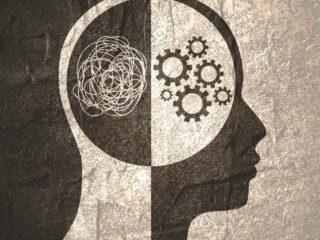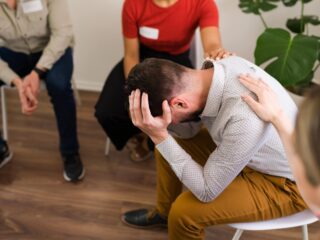It is normal to experience feelings of sadness or loneliness at certain times in your life. For example, when you have lost a loved one or have relocated for a job, these and other negative feelings may arise. However, when these feelings become overwhelming, it may be time to consider if they are signs of depression.
What Is Depression?
Depression is a recognized mood disorder that causes feelings of sadness, loneliness, and lack of interest in everyday activities. The most recent research suggests depression alters the very activity of the brain. Depression can be fatal if left untreated.
Common Signs of Depression
Only about half of those who have depression are ever diagnosed or treated professionally. It is therefore crucial you recognize the signs of depression so that you might seek medical help. Some of the more common signs include:
- Irritability
- Fatigue
- Insomnia or Excessive Sleeping
- Problems Concentrating and Focusing
- Inability to Experience Joy and Happiness
- Feeling Worthless
While the above signs of depression can be difficult to manage, other, more severe signs can feel impossible to manage. These signs include:
- Crying for No Reason
- Changes in Appetite (Not Eating or Overeating)
- Excessive Weight Loss/Weight Gain
- Suicidal Thoughts
Signs of Depression in Men
Men can exhibit many of the signs of depression previously mentioned. However, other signs are particular to men. These include:
- Anger
- Aggressiveness
- Violence
- Feeling “On Edge”
- Sexual Performance Problems
- Engaging in High-Risk Behaviors
- Self-Isolation
- Self-Medicating with Drugs and Alcohol
Signs of Depression in Women
The signs of depression in women can include additional symptoms besides those previously mentioned. These include:
- Talking and Moving Slowly
- Aches and Pains
- Headaches
- Cramps
- Self-Blaming Thoughts
- Feelings of Guilt
- Loss of Interest in Sex
Like men, women experiencing depression often turn to drugs and alcohol to alleviate their symptoms. Because men’s and women’s depressive symptoms can be different, the addiction and mental health treatment programs for men and women should be different as well.
How to Tell if You Are Depressed
It can be hard to tell if you are depressed, especially if you are exhibiting just a few symptoms. That said, the presence of any symptom may signal that you are moving toward a depressive state.
Talk to your primary care physician about your depressive symptoms. Your primary care physician can test you for depression. Even if you are diagnosed with only mild depression, your primary care physician can recommend treatment to keep it from worsening.
Depression can worsen when left untreated, with symptoms growing more intense and severe, lasting for months or even years. As a result, these symptoms can cause increasing pain and possibly lead to suicidal thoughts. Unfortunately, as depression worsens, men and women often further abuse drugs and alcohol to find temporary relief from their symptoms.
What Is Self-Medicating?
Self-medicating is the attempt to manage one’s depressive symptoms with drugs and alcohol. Many individuals use alcohol alone as a means of self-medicating. Others use alcohol along with other substances to enhance the effects. As a result, polysubstance abuse can often arise. You do not need to have an actual clinical diagnosis of depression to self-medicate.
Why Do People Self-Medicate?
The reasons for people self-medicating tend to vary from person to person. Many women self-medicate because they do not want to be perceived as making a bigger issue out of their feelings or being told they are “over-emotional.” Many men self-medicate because of societal norms that dictate they should never show weakness. For this reason, men are afraid of being perceived as weak for admitting they need help.
However, admitting you need help for your depression is in fact a sign of strength. It takes courage to admit to yourself and others that you need professional help.
The Dangers of Self-Medicating for Depression
The primary danger of self-medicating depression is that it causes more harm than good. When a person uses drugs or alcohol to alleviate their depressive symptoms, the effects are short-lived. As a result, they must continue using drugs or alcohol to maintain the desired effects. Meanwhile, depressive symptoms worsen with the use and abuse of substances.
Furthermore, the chemical changes that occur in the brain from substance misuse result in physical and psychological dependence in order to function normally. As the body builds a tolerance to the substances being misused, it needs larger amounts to maintain the desired effects. This often leads to “comorbidity,” or co-occurring conditions of addiction and depression.
Should I Seek Help for Depression?
Suppose your depressive symptoms impact your family, job, or personal relationships with loved ones and friends. If you do not understand how to resolve these symptoms without drugs or alcohol, you might want to seek professional help.
You should also consider seeking professional help if your symptoms persist for a prolonged period. We recommended seeking help as soon as possible when you are self-medicating your depression. The longer you continue to self-medicate, the higher your risk of addiction.
Addiction and Mental Health Treatment in Columbus, OH
Ohio Addiction Recovery Center in Columbus is here to help those who are ready to get professional help for their depression, or who want to stop relying on drugs or alcohol to self-medicate.
We offer depression and addiction treatment programs at our recovery center in Columbus, Ohio. These programs treat co-occurring conditions to help you overcome your depression and substance abuse. To learn more about our treatment programs or options, contact us to speak with an intake specialist today.






